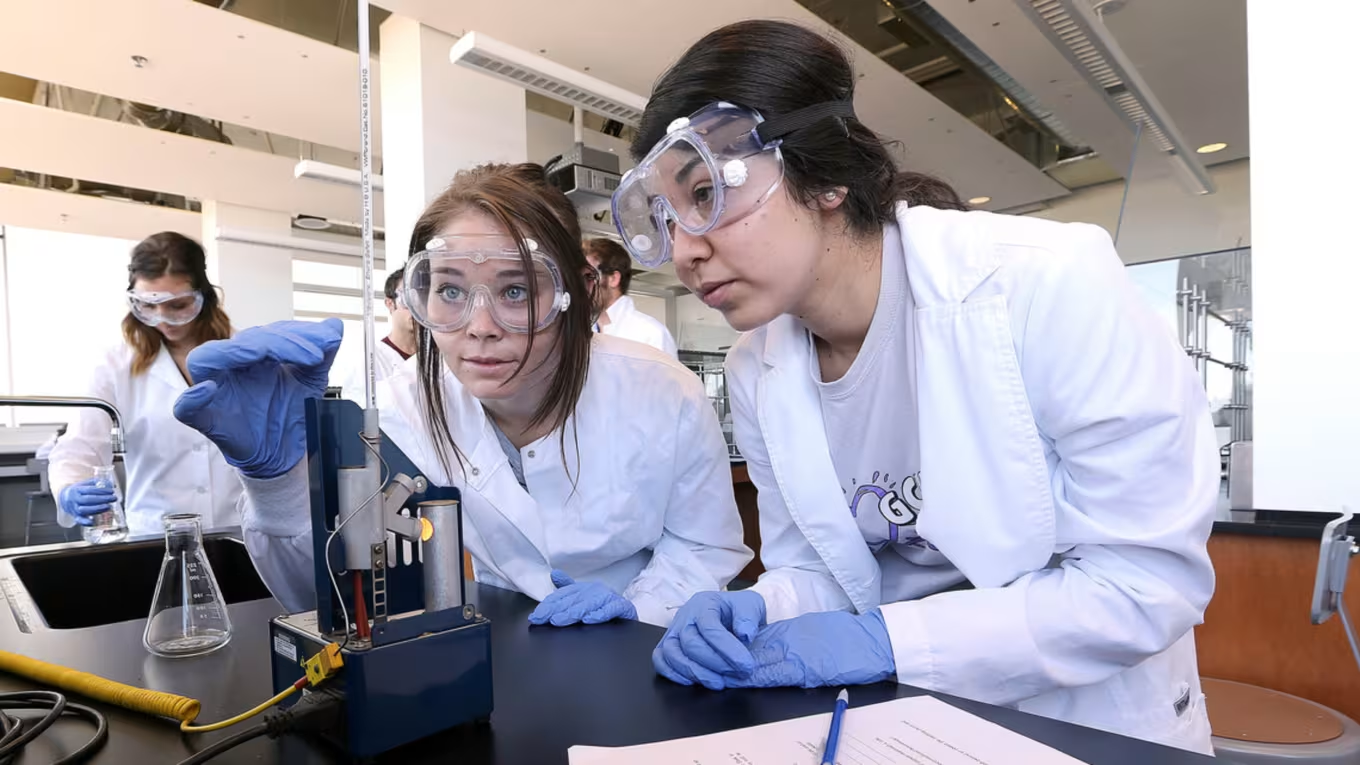Master’s in Chemistry: Education Emphasis

Master’s in Chemistry: Education Emphasis
journey today.

Future STEM professionals — scientists, technologists, engineers and mathematicians — need a firm foundation of science competencies. As students, many of these future STEM professionals will be required to take chemistry at the college level.2 As STEM fields continue to grow, so too will the need for postsecondary teachers to educate the next generation of scientists, engineers and researchers.3 Transitioning to this career path can be an ideal way to pursue your passion for science education while helping to meet the need for qualified educators in the chemistry discipline.
Blend Your Passions for Teaching and Science
The primary focus of this master’s program is to enhance your chemistry knowledge and teaching skills essential for postsecondary educators. It can prepare you to apply instructional methods effectively and navigate the university teaching landscape, including online environments, where strong communication skills are crucial.1
As a student in this program, you will receive instruction on developing your teaching abilities through instruction that covers both theoretical and practical aspects of both science and instruction.
Graduates of this online master’s in chemistry program may choose to pursue opportunities to teach chemistry at the postsecondary level.
You may pursue employment opportunities in the following settings:4
Postsecondary teachers often need a doctoral degree, though a master's or work experience may be sufficient at some community colleges.1 Qualified postsecondary teachers are essential for preparing future STEM professionals to pursue careers in science and technology. The U.S. Bureau of Labor Statistics (BLS) Occupational Outlook Handbook estimates job growth for all types of postsecondary teachers to increase by about 8% from 2022 to 2032, faster than average, accounting for an estimated increase of 108,100 jobs in the field.3
GCU has been institutionally accredited by the Higher Learning Commission since 1968 and is proud to prioritize quality education and comprehensive instruction. The College of Natural Sciences shares the university’s commitment to upholding the principles and standards established by our accrediting bodies.
Master’s in Chemistry: Education Emphasis FAQs
If you value sharing your chemistry knowledge with upcoming generations of STEM professionals, we’ve prepared answers to your most frequently asked questions about pursuing this master’s degree in chemistry.
Chemistry is the branch of science that explores matter and its various interactions. Chemistry education focuses on teaching this branch of science to students. As a future chemistry teacher at the postsecondary level, you may have the opportunity to help college students master key topics in organic and inorganic chemistry. It’s important to note that postsecondary teachers who work for some 4-year colleges and universities may need a doctorate in their field of degree.1
The requirements to become a postsecondary chemistry teacher can vary, depending on the educational institution and certain positions. Community colleges may require an advanced chemistry degree that focuses on education, while some universities may require a doctoral degree.1 After earning your MS in Chemistry, you might consider expanding your career qualifications with a doctoral degree.
If you’re passionate about the subject, earning an online master’s in chemistry could certainly be worth the effort. With a graduate degree, you may qualify to pursue advanced positions along your current career trajectory or to explore postsecondary teaching positions in academia. According to the BLS, all types of postsecondary teachers had a median annual wage of $84,380 as of May 2023.5
The pursuit of a graduate chemistry degree may be challenging due to the advanced academic requirements and the need to effectively integrate both the principles of chemistry and educational pedagogy. However, if you enjoy chemistry and sharing your knowledge and experience with others, a master’s degree with a chemistry education emphasis may be a good fit for you.

Make an Impact in Chemistry Education
Prepare to make a positive contribution as a postsecondary chemistry educator.


